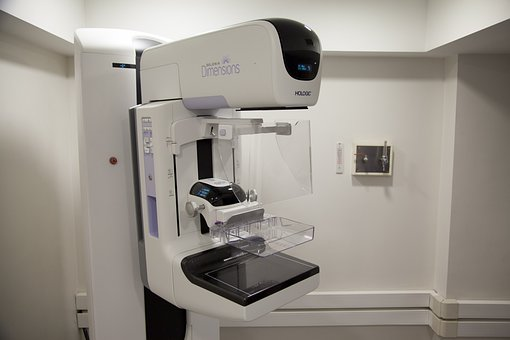7 Health Screenings Every Woman Should Have
The World Health Organization estimates that noncommunicable illnesses claim the lives of 41 million people annually, including women. However, there are a lot of health screenings that women can do regularly to take charge of their health and identify any issues as soon as they arise. Some exams are expressly designed to assess women’s health, while others are for detecting and addressing illnesses. It’s critical to complete these screenings to ensure maximum health. Here are a few worth considering.
- Bone density test
A bone density test measures calcium and other mineral levels in a segment of your bone. The test is quick, painless, and covered by most insurance plans. You should start having this screening at age 60—or sooner if you have risk factors for osteoporosis, such as a family history, a small or thin frame, or a history of smoking. If your test results are low, it doesn’t mean you have osteoporosis. But it means you have low bone density, which increases your risk for the disease.
- Colonoscopy
A colonoscopy is one of the most crucial health examinations that every woman should undergo. When detected early, cancers of the colon and rectum are frequently curable. For this reason, women must get routine colorectal cancer screenings. A home test kit, a blood test, or a clinical test are a few screening options for colorectal cancer. The best solution for you should be discussed with your doctor.
- Dermoscopy
Make an appointment with your dermatologist to get your next skin cancer screening. The most prevalent type of cancer in the US is skin cancer, and treatment success depends on early detection. Your dermatologist will check for any suspicious lesions or moles on your skin and perform a skin cancer scan, also known as a dermoscopy. This involves using a special device to magnify the lesion so your doctor can look closer.
- Mammograms
Mammograms are the most common screening test for breast cancer. A mammogram is an x-ray of the breasts that can help find breast cancer early when it is easier to treat. The American Cancer Society (ACS) recommends that women have a yearly mammogram starting at age 40. Some women may need to start earlier or have more frequent mammograms, depending on their risk level. Your doctor can help you decide when to get mammograms and how often you should have them, so keep this in mind.
- Dental checkup
During a dental examination, your dentist will clean your teeth and check for any signs of tooth decay, gum disease, or oral cancer, which is more common in women. If you have any risk factors for oral cancer, like smoking or heavy alcohol use, your dentist will probably recommend that you have more frequent dental checkups. While at it, you can see your cosmetic dentist if you want to improve your smile.
- Pelvic exam and pap smear
For most women, a pelvic exam and pap smear should be done every three years, starting at age 21. During a pelvic exam, your doctor will check your vulva, vagina, uterus, ovaries, and rectum for any signs of infection or disease. Your doctor will use a gloved, lubricated finger to feel for any changes in your vulva, vagina, uterus, ovaries, and rectum. They may also swab your vagina and cervix for laboratory testing. A pap smear is a cervical cancer screening procedure in which your doctor uses a tiny spatula to gather cells from your cervix, which are then sent to a lab for analysis. These tests can detect and treat cervical cancer and save your life.
- STD testing
STD testing is important for sexually active women of all ages because it allows you to treat an infection before it causes serious health problems. Some STDs, like HIV, can be passed on to your partner even if you don’t have symptoms. Depending on your risk factors, you may need to be tested more or less often. But getting screened at least once a year is a good idea.
There are a few different ways to get tested for STDs. The most common is a urine test, which can detect gonorrhea and chlamydia. Blood tests can detect HIV, syphilis, and hepatitis. And then there’s the swab test, which can test for gonorrhea, chlamydia, and trichomoniasis.
Women need to take charge of their health and well-being, and one way to do this is to be proactive about screenings and check-ups. While some health screenings are more well-known than others, there are several tests and screenings that all women should have in their lives.


2 thoughts on “Post: 7 Health Screenings Every Woman Should Have”